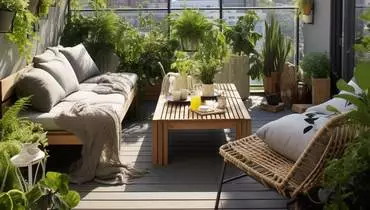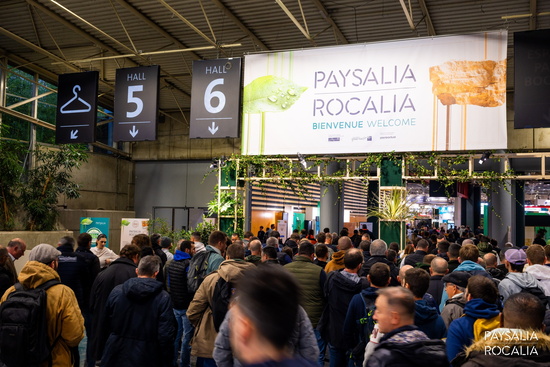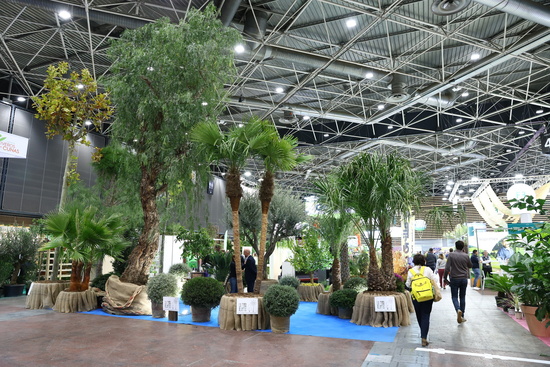Garden industry: what you should know about the profile of new consumers
Read on for a summary of the upcoming trends from the Paysalia 2023 conference "2024-2025 trends: how the landscape industry will evolve?”

Landscaping companies need to adapt how they sell gardening services and products to individual customers. But before making changes in the garden industry, we must first understand the typical profile of tomorrow's consumers. This is no easy task, as Manuel Rucar, director of CHLOROSPHERE and a partner of the 2023 Carré des Jardiniers garden competition, brilliantly noted at Paysalia 2023. Read on for a summary of his main talking points from the conference on the theme "2024-2025 trends: how the landscape industry will evolve?”
The growing weight of Millennials in the garden industry
With baby boomers and Generation X already equipped, Millennials are becoming the next strategic target population. You will need to grasp the aspirations of these predominantly urban dwellers - who have an influential say on land use and planning issues - and then put together a coherent value chain to address them. This is quite a challenge for the retail sector, which has changed little since the 1980s.
To put things into perspective, by 2025, 50% of consumers in the leisure market will be Millennials. And the figure rises to 75% for luxury goods!

Garden budgets strangled by fixed costs
Today, the average budget for a garden is €20,000, split between three areas:
- fixed overheads (i.e. mandatory spending not perceived as pleasurable)
- contingencies (e.g. a dried-out flower bed, a fallen tree after a storm, etc.)
- pleasure (desire for outdoor improvements, guided by inspiration)
Gardens are perceived as a high priority for home improvements. Despite this, these emerging consumers prefer to invest little by little, as they juggle with fixed costs that have soared in recent years and now account for 66% of the total budget of low-income households, and 38% for the middle class. Between May 2019 and November 2022, non-discretionary spending increased from 47% to 59%.
Consumption is no longer an end in itself
Tomorrow’s consumers have been marked by the Covid pandemic and social unrest, and suffer from eco-anxiety. This has resulted in fears for the future and a strong need for stability, feeding a desire to consume less but better, which in turn incentivizes businesses to focus on quality. National and international current events are scary, prompting people to adopt a local perspective: local environmental action, local communities, authentic local produce, etc.
This target group feels a need to assert itself. Millennials are more militant, have fewer children and buy less fast fashion. They want to treat themselves... but not at the expense of authenticity, which should be front and center in the products and services provided by landscaping companies.
Nostalgic Millennials hark back to past times. They don’t envy their parents’ gardens, but those of their grandparents. The 1950s are back, and more appealing than ever, accompanied by a resurgence in practices long set aside: permaculture, the sharing economy... and above all, enjoying life in a mindful and sustainable way!
For 87% of new residents under the age of 45, a garden should include an area “given back to nature”, with no or limited maintenance, even in smaller gardens.
What do Millennials expect from gardening-related businesses?
64% of consumers believe that businesses are not doing enough to achieve the transition to more responsible consumption practices. Their expectations of companies are very high, and concern the following aspects in particular:
- Distrust of big business: the typical consumer profile now prefers small local businesses. Concept stores and smaller businesses are growing.
- Environmental commitment: disillusioned with greenwashing, 50% of consumers doubt the credibility of businesses that showcase their environmental actions and social engagement.
- Contribution to waste management: between April and October, garden waste accounts for nearly 50% of the total volume of household waste.
- Digitalization: 78% of consumers are willing to buy brands with which they have had a good social media experience.
Manuel Rucar ended his presentation by recalling that there is no one-size-fits-all consumer profile for the garden industry, and no single solution. The market is changing and who knows, if municipalities are able to vegetalize their outdoor spaces, could that spell the end of Millenials' love affair with private gardens? Garden businesses have every interest in listening to and anticipating current and emerging trends.





